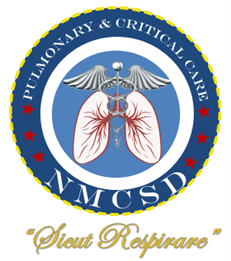Definitions:
- Adverse action: Institutional process requiring Graduate Medical Education Committee (GMEC) review and action. Adverse actions may be initiated by a Program Director when a resident fails to meet a program’s educational goals and objectives and/or has significant deficiencies in one or more of the ACGME general competencies. In most cases, adverse action will follow a documented deficiency in which the resident has not responded to counseling and in-program remediation. On occasion, egregious events may warrant adverse action without prior documented counseling or remediation. Adverse actions may include, but are not limited to: suspension of training, probation with or without extension of training or termination of training. Adverse actions are formal institutional decisions and thus become a permanent part of the resident’s training record and must be reported if requested by a licensing and/or credentialing body.
- Non-adverse action: Includes counseling and in-program remediation for failure to meet educational goals and objectives in the ACGME general competencies. Since this action is below the threshold requiring institutional action, records are maintained only at the program level and are not disclosed by the institution.
- Clinical Competency Committee (CCC): A committee that advises the Program Director and reviews the progress of all residents/fellows in a program.
- Probation: An adverse academic action recommended when deficiencies in academic performance, clinical progress, or disciplinary problems may prevent the trainee from completing the training program.
- Suspension: A period when a trainee remains in the program but is not actively training and not progressing towards graduation.
- Termination: The removal of a trainee from the training program before completion due to serious issues.
Process for Adverse Academic Actions:
- Adverse academic actions begin with a review by the fellowship Clinical Competency Committee (CCC) of the trainee’s educational record and a recommendation to the Program Director (PD).
- Except in the situation of egregious events the program director will provide a mentor and plan for improvement prior to reporting an adverse action. These may include formal informal counselling that does not become part of the official file and formal counselling that does become part of the official training record.
- If the PD agrees with the CCC’s recommendation for an adverse academic action, a proposal is submitted to the Graduate Medical Education Committee (GMEC) Subcommittee for Resident Performance.
- The GMEC Subcommittee reviews the proposal, which may include probation, suspension, or termination, and makes a decision. The proposal must outline deficiencies, expectations for improvement, consequences, and a timeline.
- Trainees have the right to respond to the proposal and provide a written or oral statement during the review process. They also have the right to be present at the GMEC Subcommittee’s review.
- If the proposal is approved, the trainee’s progress is monitored by the GMEC Subcommittee. The trainee may need to complete a probation plan and receive regular evaluations.
- If the probation plan is not successful or the trainee’s performance worsens, the PD may propose an additional period of probation or termination to the GMEC Subcommittee. Final approval for termination must be obtained from the MTF Director.
- Trainees have the right to appeal the decision to the Designated Institutional Official (DIO), who may conduct a secondary review or delegate it to a secondary review hearing. The DIO’s decision is forwarded to the MTF Director for approval.
